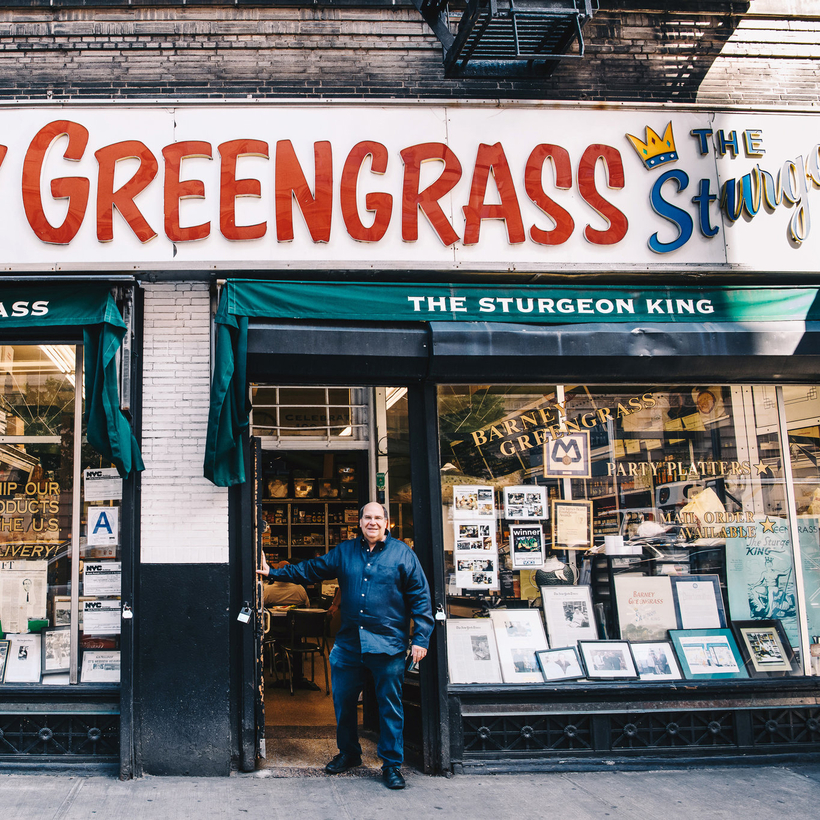Parenthood sometimes feels like a series of checklists: Disneyland, the Grand Canyon, the Lincoln Memorial. New York Times book critic Dwight Garner has a list of his own. “For me, I made sure my kids went to John’s for pizza, got dim sum at the Golden Unicorn, and soup dumplings at Joe’s Shanghai,” he tells me over breakfast at Barney Greengrass, an Upper West Side fixture, and another station in his children’s culinary education.
We both order “the scramble” (sturgeon and Nova Scotia salmon with eggs and onions), and he explains that the title of his new book, The Upstairs Delicatessen, comes from the critic Seymour Krim, who once referred to his memory as “that profuse upstairs delicatessen of mine.” The book’s subtitle—On Eating, Reading, Reading About Eating, and Eating While Reading—underscores Garner’s twin passions.


